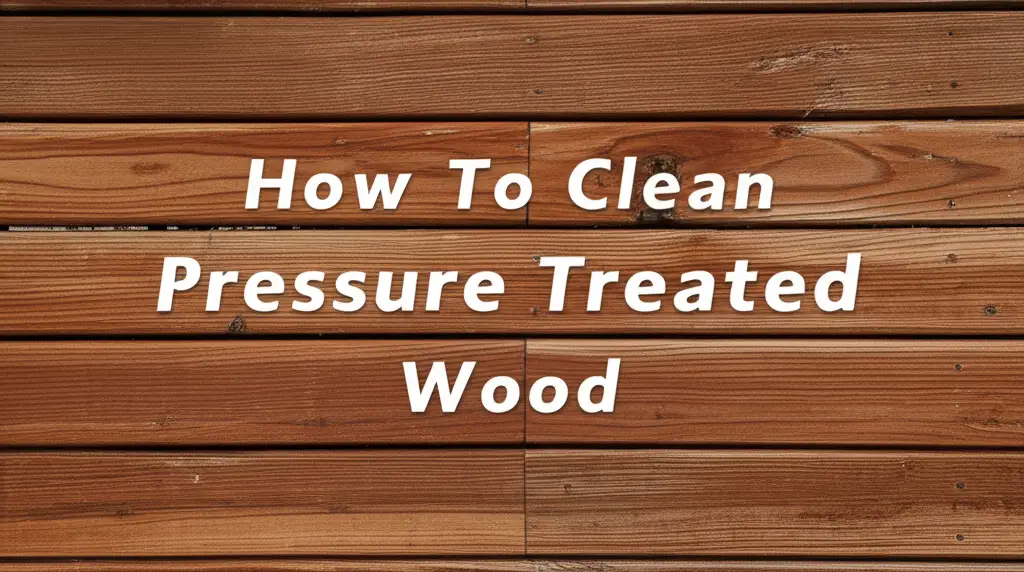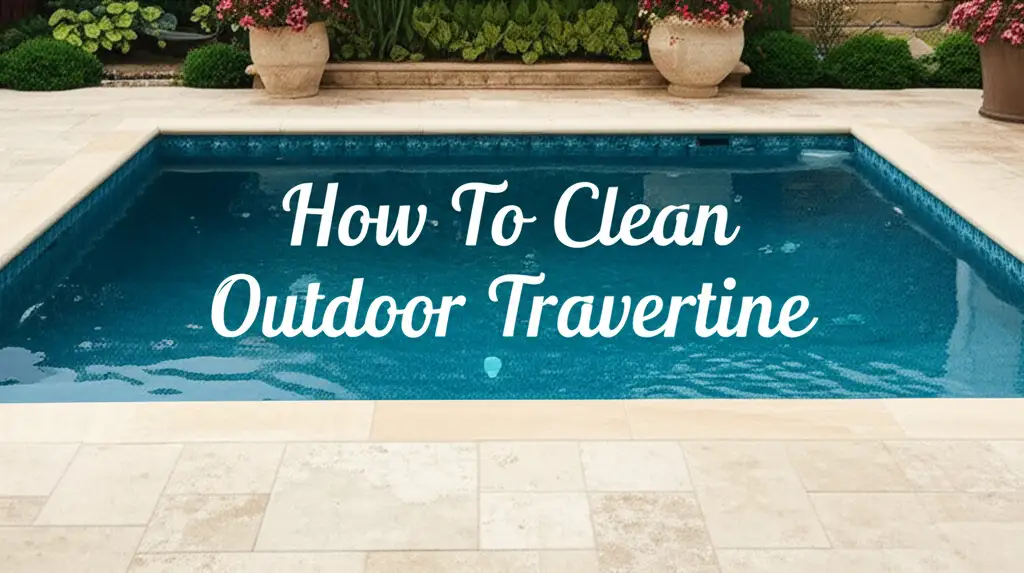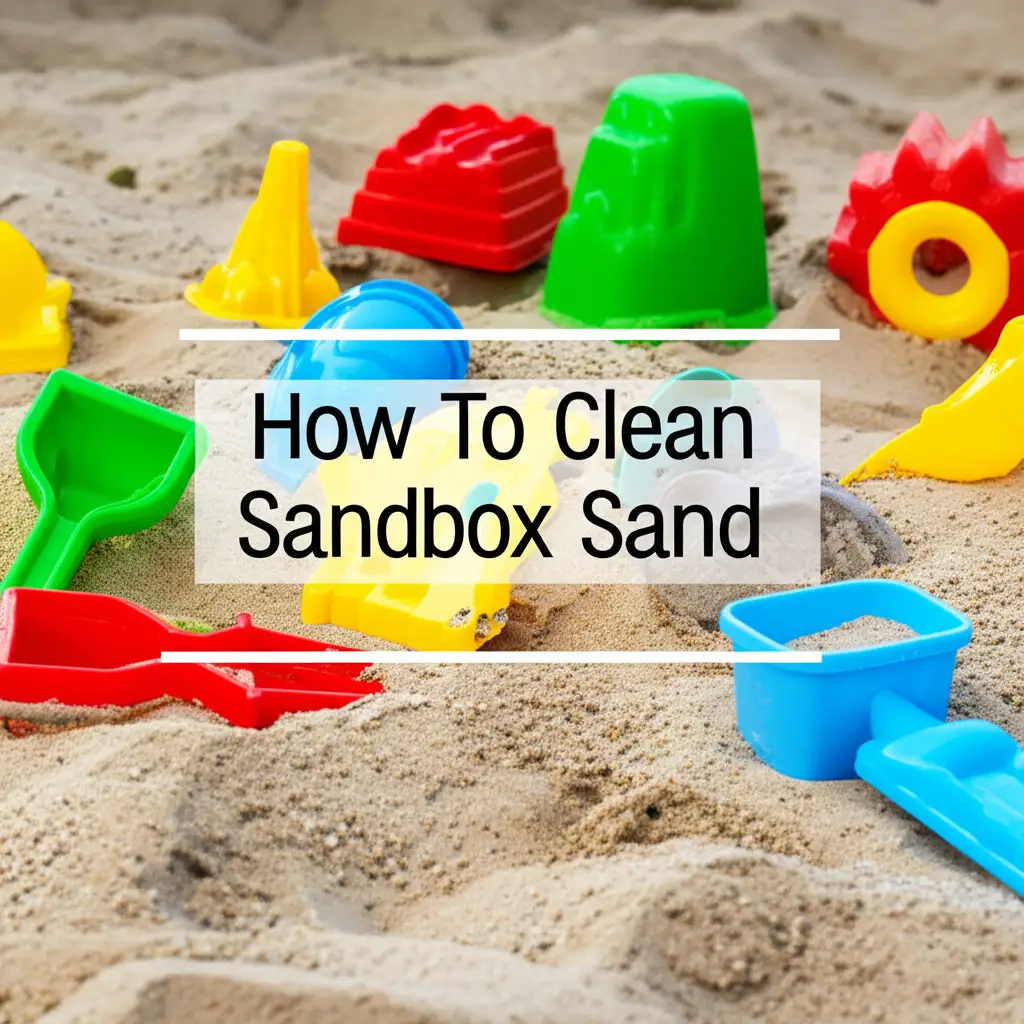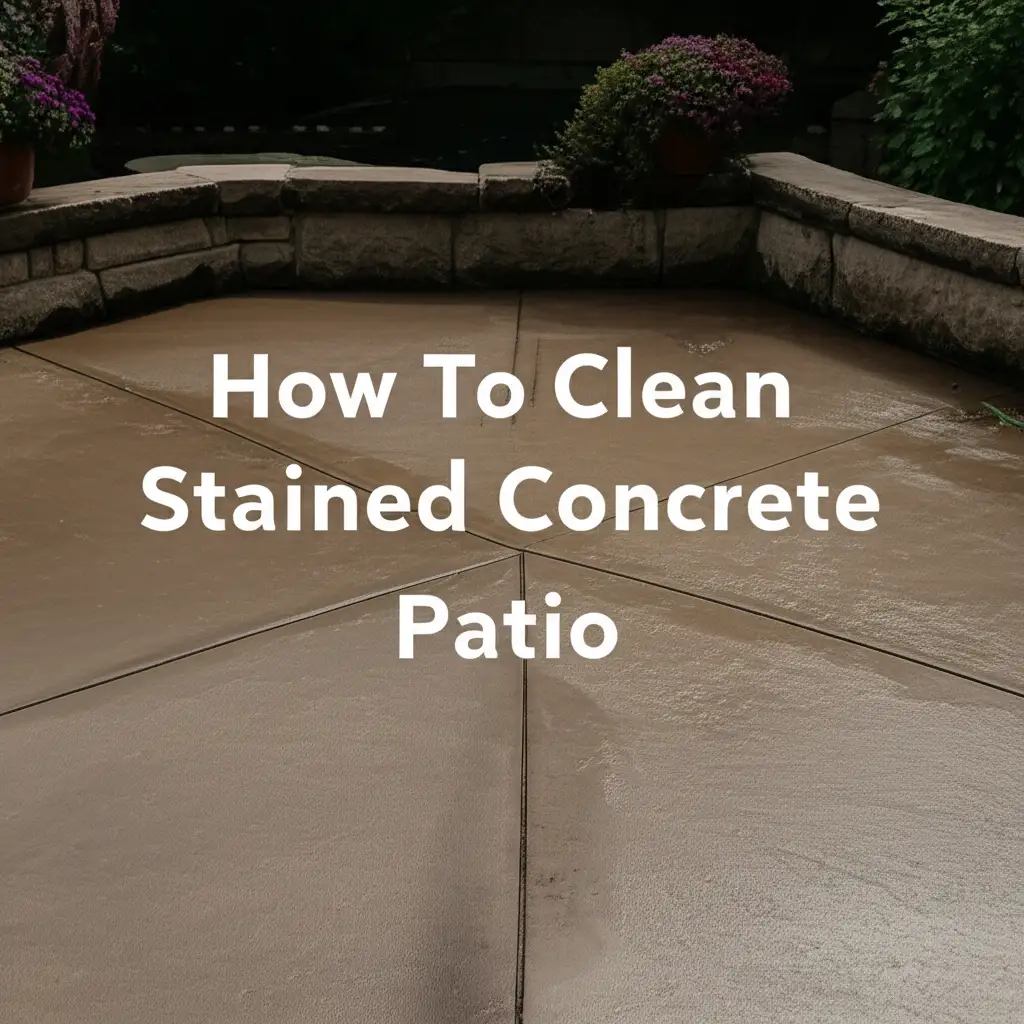· Outdoor Maintenance · 18 min read
How To Clean Bird Poop Off A Deck
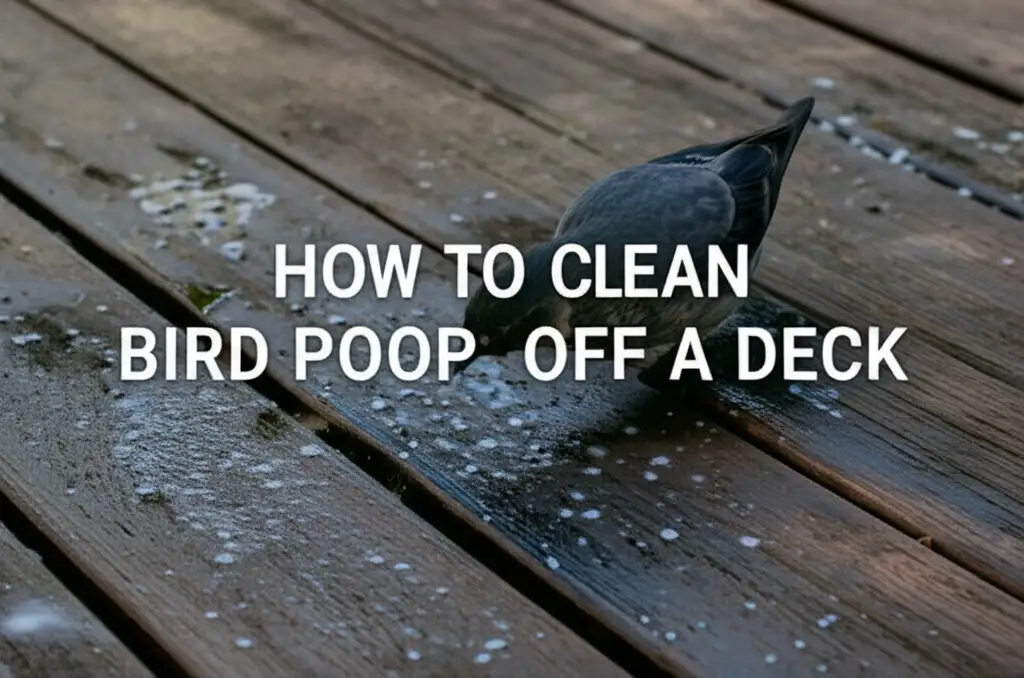
How To Clean Bird Poop Off Your Deck Effectively
Bird droppings on your deck can be more than just an eyesore. They contain acidic compounds. These compounds damage deck surfaces over time. Cleaning bird poop off a deck keeps your outdoor space looking good. It also protects the material from stains and erosion. This guide helps you remove those unwelcome marks. We offer simple, effective methods for a clean, inviting deck.
You want your deck to be a pleasant place. Regular cleaning, especially for bird droppings, helps maintain its beauty. This article shows you the right tools to use. It explains safe cleaning methods for different deck materials. We discuss how to tackle both fresh and dried stains. We also cover ways to prevent future bird messes. Follow these steps to keep your deck spotless and durable.
Takeaway:
- Act Fast: Clean bird poop quickly to prevent permanent stains and material damage.
- Use Gentle Methods: Start with mild solutions and soft tools to protect your deck.
- Match Method to Material: Different deck types (wood, composite, concrete) need specific cleaning approaches.
Bird poop easily removes from a deck by first moistening the droppings, then gently scraping away the bulk. Follow this with a soft scrub using a mild soap or vinegar solution and warm water. Rinse the area completely to lift any residue and protect the deck surface.
Understanding Why Bird Poop Needs Quick Removal
Bird droppings are more than a small spot. They pose several problems for your deck. You need to clean bird poop off a deck quickly. This action protects your deck from damage. It also keeps your outdoor living area hygienic.
Bird waste contains uric acid. This acid is corrosive. It eats away at your deck’s finish over time. This leads to faded spots or etched marks. These marks become harder to remove as time passes. Quick removal stops this damage. It preserves your deck’s surface and color. A clean deck also ensures your enjoyment.
Acidity and Deck Damage
The acid in bird droppings attacks deck materials. It breaks down wood fibers. It corrodes composite deck surfaces. For painted or stained decks, it can strip the finish. This leaves bare, vulnerable spots. These spots allow moisture to get in. This causes more damage, like rot or mold. Early cleaning prevents such deep, lasting harm. It maintains the strength of your deck.
If you ignore bird poop, stains set in. These are often dark and very noticeable. They can change the look of your entire deck. Cleaning these old stains requires stronger methods. These methods might be harsher on your deck. Acting fast saves time and effort later. It also helps your deck last longer.
Health Concerns and Hygiene
Bird droppings carry bacteria, fungi, and parasites. These can cause health issues. Salmonella and E. coli are examples. You do not want these germs on your deck. This is where your family gathers. Pets also spend time on the deck. Cleaning bird poop removes these risks. It creates a safer environment for everyone.
Think about hygiene on your deck. You walk barefoot. Children play on it. Food might fall onto the surface. Bird droppings create an unsanitary space. Regular cleaning makes your deck safe for activities. It supports a healthy outdoor lifestyle. This step is important for home wellness.
Aesthetic Impact and First Impressions
A deck with bird droppings looks dirty. It lowers the appeal of your home. Guests notice these spots. They can make your outdoor space feel neglected. A clean deck enhances your home’s curb appeal. It shows you care about your property.
Your deck is an extension of your home. It should be inviting. Visible bird droppings detract from its beauty. They make your deck less enjoyable. A clean deck provides a pleasant view. It is a welcoming spot for relaxation. Keeping it clean boosts your home’s overall look.
Essential Tools and Supplies for Cleaning Bird Poop
Before you start cleaning bird poop off a deck, gather your supplies. Having the right tools makes the job easier. It also helps protect your deck. You want to clean effectively without causing more damage.
Think about the material of your deck. Different materials may need different brushes. Always start with gentle tools. You can move to stronger ones only if needed. This protects your deck’s finish.
Basic Cleaning Kit
You need a few simple items for most bird poop messes. Start with a bucket of warm water. A garden hose with a spray nozzle is also helpful. Get a soft-bristle brush or a sponge. These are gentle on deck surfaces. A plastic scraper or an old credit card can help with dried droppings. Avoid metal scrapers. They can scratch your deck.
For cleaning solutions, mild dish soap works well. You can also use white vinegar. Mix vinegar with water for a natural cleaner. Baking soda is another option for tough spots. Have paper towels or old rags ready. These help blot up excess moisture.
Protective Gear
Protect yourself when cleaning. Bird droppings contain germs. Wear disposable gloves to avoid direct contact. Eye protection, like safety glasses, shields your eyes from splashes. If you use strong cleaning solutions, wear a mask. This prevents inhaling fumes. Old clothes are a good idea too. They can get dirty.
Safety is important for any cleaning task. You want to finish the job without problems. Proper gear keeps you safe from chemicals and bacteria. It also protects your skin and clothing. Always prioritize your health when working outdoors.
Specialized Deck Cleaners
Sometimes, a mild solution is not enough. For stubborn stains, consider a specialized deck cleaner. These products are formulated for deck materials. They can lift deep stains. Always choose a cleaner suitable for your deck type. Read the product label carefully.
Follow the manufacturer’s instructions for mixing and application. Test the cleaner on a small, hidden area first. This checks for discoloration or damage. Some cleaners are powerful. They might remove some of your deck’s stain or finish. Use them with caution.
Step-by-Step Guide to Cleaning Fresh Bird Droppings
Cleaning fresh bird poop off a deck is easier than dried poop. Quick action prevents stains from setting. It also reduces potential damage. I find that immediate attention saves a lot of effort later.
Follow these steps for a clean, spot-free deck. This method is gentle yet effective. It works well on most deck surfaces.
Step 1: Gather Your Tools
First, collect everything you need. You will want a bucket, warm water, and mild dish soap. A soft-bristle brush or sponge is essential. Have a garden hose nearby for rinsing. Wear gloves to protect your hands. This preparation makes the cleaning process smooth. It ensures you do not have to stop mid-task.
Having all your items ready saves time. It also helps you clean more efficiently. I always make sure my hose reaches the area. This prevents carrying heavy water buckets. This simple step sets you up for success.
Step 2: Prepare the Area
Before you touch the droppings, make sure the surrounding area is clear. Move any furniture, potted plants, or decorations away. This gives you space to work. It also prevents splashes onto other items. Sweep loose debris from the deck surface. This includes leaves or dirt.
Clear space makes cleaning easier. It helps you focus on the stain. Protecting nearby items is important. You do not want to spread the mess. A clear area also allows for a better rinse.
Step 3: Gentle Scraping
For fresh, semi-solid droppings, gently scrape off the excess. Use a plastic scraper, an old credit card, or a stiff piece of cardboard. The goal is to lift the bulk without spreading it. Do not press hard. You want to avoid scratching the deck surface. This step removes most of the material.
Scraping is the first physical removal step. It makes the rest of the cleaning more effective. It also minimizes the amount of liquid you need. Be careful and take your time. This gentle approach protects your deck.
Step 4: Mild Cleaning Solution Application
Now, mix your cleaning solution. Add a few drops of mild dish soap to a bucket of warm water. You want a soapy, not foamy, solution. Dip your soft-bristle brush or sponge into this mix. Gently scrub the stained area. Use circular motions. This helps lift the remaining residue.
For tough spots, you can make a paste. Mix baking soda with a little water. Apply the paste directly to the stain. Let it sit for a few minutes. Then, gently scrub it away. This method is effective for many stains. For more natural cleaning methods, consider how to clean with vinegar and baking soda.
Step 5: Rinse Thoroughly
After scrubbing, rinse the area completely. Use your garden hose with a gentle spray. Make sure to wash away all soap residue and loosened dirt. Do not let soapy water dry on the deck. This can leave streaks. Rinse a slightly larger area than you cleaned.
A thorough rinse is critical. It prevents soap scum buildup. It also ensures no cleaning solution remains. Proper rinsing helps your deck look clean and fresh. It also helps preserve the deck’s finish. For overall deck cleaning without removing stains, consider guides on how to clean a dirty deck without removing stain.
Tackling Stubborn and Dried Bird Poop Stains
Dried bird poop can be a challenge. It adheres firmly to the deck surface. These stains require a bit more effort. Do not panic. You can still remove them effectively. Patience is important for these tougher spots.
Aggressive scrubbing can damage your deck. Use a measured approach. Start with gentle methods. Only increase the intensity if needed. This protects your deck’s integrity.
Pre-Soaking Techniques
Dried bird droppings are hard. They need softening. The best first step is to pre-soak the area. Pour warm water directly onto the dried poop. Let it sit for 5 to 15 minutes. This softens the hardened material. It makes it easier to remove.
For very stubborn stains, place a damp cloth over the spot. Let it sit for an hour or more. This keeps the area wet. The moisture breaks down the dried material. This step is crucial for effective removal.
DIY Natural Cleaning Solutions
After soaking, you can use natural cleaners. White vinegar is a good option. Mix equal parts white vinegar and water in a spray bottle. Spray the solution onto the softened droppings. Let it sit for a few minutes. Vinegar’s acidity helps break down the stain.
Baking soda also works wonders. Make a paste with baking soda and a little water. Apply this paste directly to the stain. Let it sit for 10-15 minutes. The paste absorbs odors and helps lift grime. For more ideas on natural cleaning, check out our guide on how to clean with vinegar and baking soda.
Commercial Deck Cleaner Usage
Sometimes, natural solutions are not enough. For truly stubborn stains, a commercial deck cleaner might be necessary. Choose a cleaner designed for your deck material. Always read the instructions carefully. Dilute the cleaner as recommended.
Apply the cleaner to the stain. Allow it to sit for the suggested time. Some cleaners work quickly. Others need more time. Follow safety precautions. Wear gloves and eye protection. Commercial cleaners are powerful. Use them wisely to avoid deck damage.
Gentle Scrubbing and Reapplication
After applying your chosen solution, it is time to scrub. Use a soft-bristle brush or a non-abrasive pad. Gently scrub the stain in circular motions. The softened droppings should start to lift. Do not use too much force. This prevents scratching the deck.
If the stain remains, reapply the solution. Let it sit for a longer period. Repeat the scrubbing process. You might need several passes for very old stains. Patience is key. Once the stain is gone, rinse the area thoroughly. This removes all cleaning solution and residue. A clean rinse helps maintain your deck’s appearance.
Specific Deck Materials: Wood, Composite, and Concrete
Different deck materials react differently to cleaning agents. What works for wood might not be ideal for composite. Understanding your deck type is important. This ensures safe and effective cleaning. You want to clean bird poop off a deck without causing harm.
Always test any cleaning solution in an inconspicuous area first. This simple step prevents unwanted damage. It helps you confirm the cleaner is safe for your specific deck.
Cleaning Bird Poop Off Wooden Decks
Wooden decks require gentle care. Wood is porous. Bird droppings can soak in and stain deeply. Always pre-soak dried droppings with warm water. Use a mild soap and water solution. A soft-bristle brush is best for scrubbing. Avoid stiff brushes. They can scratch or damage the wood grain.
Rinse thoroughly with a garden hose. Use low pressure. High-pressure washing can splinter wood. After cleaning, let the wood dry completely. Consider re-sealing or re-staining your wooden deck annually. This protects it from future stains and weathering. Proper maintenance keeps wood looking good.
Cleaning Bird Poop Off Composite Decks
Composite decks are low-maintenance. They resist stains better than wood. However, bird droppings can still stick and leave marks. Use a mild dish soap and warm water solution. A soft brush or sponge works well. Composite materials are durable but can scratch. Avoid abrasive cleaners or steel wool.
For stubborn stains, a composite deck cleaner might be helpful. Always check the manufacturer’s recommendations. Rinse composite decks well with a hose. They typically do not absorb water. This makes rinsing easy. Composite decks generally require less post-cleaning care.
Cleaning Bird Poop Off Concrete and Paver Decks
Concrete and paver decks are very durable. They can handle stronger cleaning methods. For bird droppings, start with warm water and a stiff-bristle brush. Mild soap helps lift the stain. If the stain persists, a vinegar solution can be used. Mix equal parts white vinegar and water. Spray it on and let it sit.
For very tough stains on concrete, a pressure washer can be effective. Use a wide spray pattern. Keep the nozzle a safe distance from the surface. Too much pressure can damage concrete. Always test a small area first. Rinse the concrete thoroughly after cleaning. This removes all residues.
Preventing Future Bird Droppings on Your Deck
Once you clean bird poop off a deck, you want to keep it clean. Prevention is often easier than cleaning. There are several ways to discourage birds from landing on your deck. These methods are simple and effective.
Think about what attracts birds. Then, remove or deter those elements. This helps maintain a cleaner deck surface. It reduces your cleaning workload.
Deterrents and Scares
Birds avoid areas they perceive as unsafe. Shiny, moving objects can scare them away. Hang old CDs, aluminum foil strips, or reflective tape around your deck. These reflect light and move in the wind. This creates a disorienting effect for birds. Wind chimes also work. Their sound can deter birds.
Plastic owls or scarecrows can also be effective. Move them regularly. Birds are smart. They will learn if the deterrent is always in the same spot. Netting can provide a physical barrier. This is a more drastic but very effective option. Bird spikes offer another physical deterrent. These are placed on railings or ledges.
Strategic Placement of Feeders
Bird feeders are a common reason for droppings. If you have feeders, place them away from your deck. Put them in your yard or garden. Position them far enough so birds do not fly over your deck. This prevents them from pooping on the deck surface.
Consider feeder design. Some feeders have trays that catch seeds and waste. This minimizes mess below. Clean feeders regularly. This also helps reduce bird activity around them. A little distance makes a big difference for deck cleanliness.
Regular Maintenance and Inspection
Regular deck maintenance helps identify problems early. Inspect your deck often. Look for any new bird droppings. Clean them immediately while fresh. This prevents them from setting into stubborn stains. Prompt action is always best.
Keep your deck free of food crumbs. Food attracts birds. Sweep your deck daily or every few days. This removes potential food sources. It also clears away loose debris. A tidy deck is less appealing to birds. A clean deck also looks better. For maintaining a clean deck, refer to tips on how to clean a dirty deck without removing stain. This practice helps you keep your outdoor living space clean and inviting.
Safety Measures and Best Practices for Deck Cleaning
Cleaning your deck involves certain risks. You work with water, cleaning solutions, and sometimes ladders. Taking safety measures is important. This protects you and your deck. Always prioritize safety.
Good cleaning practices ensure a good outcome. They prevent damage to your deck. They also keep you safe from harm. Follow these tips every time you clean.
Personal Protective Equipment
Always wear appropriate personal protective equipment (PPE). Gloves protect your hands from chemicals and bird waste. Eye protection, like safety glasses, shields your eyes from splashes. If you use strong cleaners, wear a mask. This prevents inhaling fumes. Proper ventilation is also key. Make sure you have fresh air.
Wear sturdy, non-slip shoes. Decks get slippery when wet. Good footwear prevents falls. Long sleeves and pants offer extra skin protection. This keeps splashes off your skin. Safety gear is simple to use. It makes a big difference in preventing accidents.
Deck Material Considerations
Understand your deck’s material. Wooden decks need gentle cleaners. They can stain or warp with harsh chemicals. Composite decks are more forgiving. Yet, they can scratch. Concrete decks are tough. But high-pressure washing needs care. Knowing your material guides your cleaning choices.
Always test any new cleaner. Apply a small amount to an inconspicuous spot. Wait a few minutes. Check for discoloration or damage. This step prevents widespread issues. It helps you pick the right product. Different decks require different treatments.
Environmental Impact and Runoff
Cleaning solutions can harm plants and waterways. Be mindful of runoff. If possible, collect dirty water. Dispose of it properly. Avoid letting harsh chemicals flow into storm drains. These lead to rivers and lakes. Choose eco-friendly cleaners when possible. Many mild soaps are biodegradable.
Protect nearby plants. Cover them with plastic sheeting. Or, water them heavily before and after cleaning. This dilutes any runoff. It prevents chemical burn. Being environmentally responsible is part of good cleaning practice. It protects your garden and the local ecosystem.
FAQ Section
Q1: How often should I clean bird poop off my deck? A1: You should clean bird poop as soon as you see it. Fresh droppings are easiest to remove. They also cause less damage. Regular checks, perhaps weekly, help catch new messes quickly. This proactive approach keeps your deck looking its best. It also prevents long-term stains and damage from setting in.
Q2: Can I use a pressure washer to clean bird poop? A2: Yes, you can use a pressure washer, but with caution. Use a low-pressure setting and a wide fan tip. Keep the nozzle a safe distance from the deck surface. High pressure can damage wood fibers, erode composite, or loosen concrete pavers. Always test a small, hidden area first to check for adverse effects.
Q3: What natural solutions are effective for bird poop stains? A3: White vinegar and baking soda are great natural options. Mix equal parts white vinegar and water in a spray bottle. Spray on the stain and let it sit. For a paste, mix baking soda with a little water and apply it to stubborn spots. Gently scrub then rinse well. These options are safer for decks and the environment. More natural cleaning tips are available for how to clean with vinegar and baking soda.
Q4: Will bird poop permanently stain my deck? A4: If left for too long, bird poop can leave permanent stains, especially on porous materials like wood. The acid in droppings etches surfaces or discolors finishes. Quick removal reduces this risk significantly. Regular cleaning and deck maintenance help prevent lasting marks. Sealing wooden decks also offers protection.
Q5: Are there specific products to prevent birds from pooping on my deck? A5: Yes, several products can help. Reflective deterrents like shiny tape or old CDs scare birds. Plastic owls or other decoy predators can also work, but move them often. Bird netting creates a physical barrier. Strategic placement of feeders away from the deck also reduces bird presence and droppings.
Q6: What if the bird poop is dried and baked on by the sun? A6: For dried, baked-on bird poop, pre-soak the area with warm water for 10-15 minutes. Placing a damp cloth over the spot can also help rehydrate it. Then, gently scrape off the bulk with a plastic scraper. Apply a mild cleaning solution or a baking soda paste. Scrub gently, and reapply if needed. Rinse thoroughly afterward.
Conclusion
Cleaning bird poop off a deck is an essential task for any homeowner. It is not just about aesthetics. It is about protecting your deck from acidic damage. It is about maintaining a hygienic outdoor space. We covered simple steps for fresh droppings. We also explored methods for tackling stubborn, dried stains. Always remember to use the right tools for your deck material.
Consistency is key in deck maintenance. Promptly cleaning bird droppings prevents deeper problems. Consider deterrents to minimize future messes. A clean deck enhances your home’s beauty. It also provides a safe, enjoyable area for your family and friends. Make deck cleaning a regular part of your home care routine. Your deck will thank you for it with years of beautiful service. Take action today to keep your deck spotless and inviting.
- bird droppings
- deck cleaning
- outdoor maintenance
- deck stains
- wood deck
- composite deck

